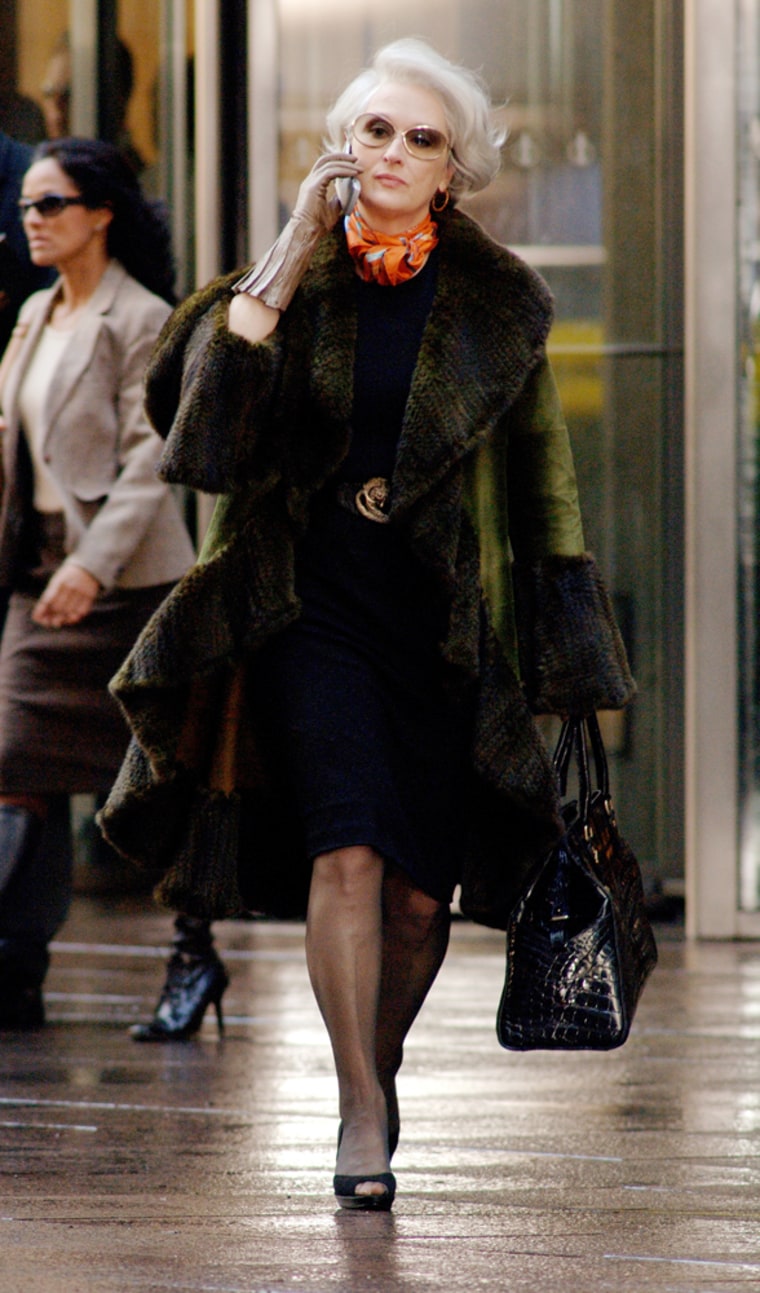The fashion statements are hard to miss in “The Devil Wears Prada,” and if you’re thinking about the dizzying array of high-class garb that drapes the preening cast of characters, you’d be only part right. The more glaring — and audible — references are the ones that directly relate to News Corp., the entertainment conglomerate that owns Twentieth Century Fox, the studio behind the film.
The New York Post’s gossipy Page Six is conspicuously mentioned, and TVGuide takes a beating as the place to which a shamed assistant, who dared leave her desk to tend to a bleeding letter-opener gash, was demoted. News Corp. owns the Post and 41 percent of TVGuide.
There’s also a snippet of Fox's "Best Damn Sports Show Period" on the television in one character’s apartment. The capper, however, may just be the line delivered by Meryl Streep, who portrays the deliciously imperious fashion magazine editor Miranda Priestly. Priestly — who is obviously Page Six fodder — declares News Corp. Chairman Rupert Murdoch should cut her a check for all the papers she sells for him.
“Mr. Murdoch thoroughly enjoyed the movie and laughed out loud at that line,” says Fox spokesperson Andrew Butcher.
“I thought it was exactly what the character would think,” says the film’s director, David Frankel, who said Streep improvised the Murdoch invocation. “It was amusing and reverential. The character was just making an observation of how the world works.” Frankel noted that the inclusion of these references was “not for the sake of selling, but for authenticity.” But he added that as long as there was an opportunity to insert a media name, “it may as well be a News Corp. property.”
So is the next stage of product placement the cinematic litany of corporate entities and affiliations? And if this is branding, does the media property being touted fare as well as the beverage company with bottles of soft drinks occupying the center of the frame?
“I thought it was very clever, and I don’t think it hurts,” says Dennis B. McAlpine, an entertainment analyst. “When you think about it, it’s a Fox film. Why not mention News Corp. properties?”
He concedes, however, that while media insiders would be familiar with Rupert Murdoch and Page Six, many moviegoers might miss it. “The movie was probably made for people in the know,” he says. Of the screening of the film he attended, McAlpine observed, “I’ve never seen so many tall, skinny women wearing heels in my life.”
For Enda King, strategic director at New York branding consultancy Redscout, it would have been stranger had the film not included these references, which he considers branding.
“Even the title of the film refers to a brand,” he says, suggesting that these references wind up “titillating” audience members who expect them to be there. “You’re bringing them into the world,” says King. “Isn’t that what audiences go to movies for?”
“No, it’s not branding,” says Richard Laermer, chief executive officer of RLM Public Relations and the author of “Full Frontal PR.” With branding, he says, “the visuals are everything, and without the visuals there’s nothing.” However, Laermer concedes, the buzz that references often generate can also bring business.
“All movies have to rise above the clutter,” he says. “The only way to do that is to make people talk about it, and the way to do that is to differentiate.” So, while some moviegoers may never have heard of Rupert Murdoch and the empire he runs, they’ve heard something else. Says Laermer: “They’ll say, 'I want to go to the movie where Meryl Streep made up the line.'”
